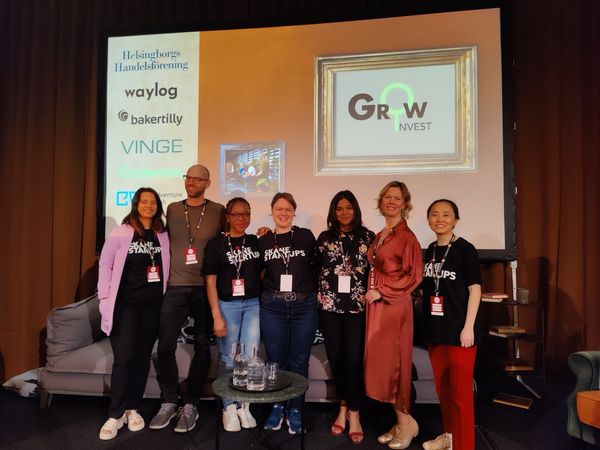A few days ago, Innovation Endeavors organized a webinar during which they interviewed Joel Peterson. I found the discussion quite interesting and insightful. I would like to share with you some of the questions that have been discussed during the webinar. The conversations have been edited.
Here you can check his book on Amazon. I am excited that I’ve got a copy already!
Question: What are some of your most challenging leadership moments? And what did you learn primarily from that?
Answer: Crises are generally a great time to establish your leadership and your trustworthiness and to build a team.
When I moved to the west coast and was going to take up another responsibility. The partners came to me and asked me to run the company. So I agreed to run the company for three years.
I had a three-part plan — the first year was going to be shipshape, which is to say, we’re going to get our balance sheet in order; the second year was profitable; and then the third year was well run. About two and a half years in, I got us relatively shipshape, and we were profitable. However, the well-run thing meant a bunch of changes that the founding partners didn’t like. I got fired and sued in county court state court and federal court, and I spent the next several years in lawsuits. That was my first real experience with a very difficult crisis and I learned a lot from it. It turned out to be the best thing that ever happened to me in my entire career, and then I’ve gone from one crisis to another. Since then, I don’t fear them so much anymore.
What I learned was that the sun rises. It’s always sunny above the clouds. I think when you’re in the clouds when it’s rainy and cold and foggy, you forget that it’s sunny above the clouds somewhere on earth. If you can figure out you know how to get through it and get to the other side, some great things can happen.
Question: How do you get to the other side/get through the difficult times? What are your learnings?
Answer: I think the first thing is you have to have liquidity — your first job is survival. That’s typically an issue of having enough cash. You have to defer capital expenditures, stretch out operating expenses, cut back on operating expenses, get out of hobbies, and probably reduce headcount. At JetBlue, we just went through a terrible time. The board decided that we would all defer all of our board fees; the management team cut their salaries in half voluntarily. Then we went out and borrowed a bunch of money so we could continue to pay our crew members, and then we arranged the PPP with the government.
The next thing you have to do is to confront reality. I mean facts are stubborn things and I think a lot of times people don’t like to face that reality, whereas I think the sooner you can face it, the more transparent you can be about it, and the more you can bring people into the tent, let them understand what you’re grappling with, the more likely they are to support you and understand the trade-offs, you’re making and you become a team.
Question: You talk about the importance of leaders confronting reality so they have all the facts to work with. So what should startup leaders be doing right now to make sure they are seeing reality?
Answer: The problem with today’s reality is they depend on things that we don’t know much about. I encouraged the CEOs that I work with to run several different scenarios. Then you step back and think, what is our covenant with our customers, with our crew members and what have we promised them because trust is what will get us through this.
The promise that we have to our customers in Jet Blue is safety. Now we need to expand the notion of safety to health. That means sanitizing planes, wearing masks, and taking longer to in our turnarounds to make sure that we’re probably not selling middle seats for a while. We’ve got to get keep people confident that they are safe again in the air.
Question: We’re all in a state of crisis both with the coronavirus and the recent issues of racial inequality and justice and police brutality. In the backdrop of the pandemic, employees, customers, and partners are all dealing with existential questions. I’m going to talk a lot about the importance of listening. What does that look like in practice to be a good listener?
Answer: The main thing is you have to capture what the other party is saying and understand it. I’m sure everybody in the audience has been talking to people when you can tell that they’re quiet. They’re listening but you know what they’re doing is, they’re formulating their next comment, and people are smart they can tell when that’s happening.
I had an interview with Adam Bryant from the New York Times and he talked bout listening without an agenda. I think that’s the notion of listening, where you don’t have an agenda, you’re not looking to make a point, you’re looking to understand. That is a very trust-building way to listen to another party. I think one of the things that leaders can do at this time is listen carefully to what other people are saying and they will remember how they felt during this period because it’s such a crisis time. So you have a chance to listen very proactively.
Question: I think listening without an agenda is a great intention. Are there any behaviors or activities you find that set you up to be sort of a good listener?
Answer: I think you need to make sure that it’s frequent enough. You need to make sure that you are asking questions and you’re doing more listening than talking. You’re not selling and pushing and trying to motivate people.
If you’ve done a good job at creating a mission that everybody shares, it gives people meaning and you don’t have to motivate them because they own the mission. They care about it as much as you do. So listening to them and jointly solving problems can be quite energizing and quite helpful. I think that attitude is a really helpful one to have.
Question: What advice do you have for founders on engaging with customers during these times? Whether it’s the right time to start new relationships or accelerate existing ones?
Answer: I think it’s really smart to secure your existing relationship and understand where people’s issues and problems are. Be helpful to the customers and the trust factor will go way up. You’re highly dependent on trust with your lenders your investors your customers and your crew members, or your employees. Trust has become the currency for getting through these kinds of times.
Trust is built on delivering on promises. And so fundamentally what you have to do is make sure that you understand what people want. And then you have to meet their expectations, anytime you disappoint an expectation, you’ve actually made a withdrawal, and you have to repair that over time so I think monitoring those kinds of trust accounts is really important during this time.
You asked about starting new relationships. I think it’s hard to do it virtually. I think it’s hard to build trust virtually. If you’ve not bothered to build trust to this point, you’re going to struggle with it. If you’ve done a really good job, you’ll find your team congealing coming together even around bad things. But trust is one of those things that’s built up a conversation at a time, and can be destroyed with one event. It is fragile but powerful.
Question: What does a high-trust organization, look, and operate like in practice?
Answer: High-trust organizations do a great job of listening. High-trust organizations have people who are fiduciaries, they sense that they have a meaning and a purpose and relationship with each other that’s of a higher order. They’re not just solving for themselves, they are looking out for others, they have the best interest of others at heart and the best interest of the enterprise.
When people trust you and they know how you’d make the decision, you don’t have to motivate people and you find you’re not making the 70–30 decisions anymore. What you find is that most decisions are being made by the people who work with you, who are confident in making the decisions because you’ve developed this currency of trust.
Question: To that point, you’ve talked about so the importance of a reliable and predictable operating system for a leader. What does that mean and why is it important?
Answer: It means that you are predictable, that people know how you’re going to respond. And that you’re a fiduciary. Trust is a derivative of three things.
One is character: I can trust you to do what’s right, that you’ll look out for my interests as well as you would your own. Second is competence: I shouldn’t trust you if you’re not competent, you will not deliver on promises. And the third one is authority: If you don’t have the authority to deliver on a promise, there’s no point in trusting you. Fundamentally a real trust has to be built on those three elements. So that’s smart trust.
I think a lot of people think of trust as this kind of warm fuzzy feeling that, Oh I like you and therefore I trust you. That’s a very fragile and flimsy way to build a business. I wrote this book called The 10 Laws of Trust and I said there are 10 ways that you can secure culture, a culture of trust. We put a diagnostic in there where you can ask questions and figure out how high is the level of trust in your organization, and then manage it over time.
Question: I think one thing that’ll be helpful to talk through is how to have difficult conversations. If you teach a class called Managing Growing Enterprises where students learn how to hire and fire. A lot of CEOs here have been having hard discussions with their teams, and virtually about layoffs, compensation reduction, and promotion delays. What learnings can you share about how to best have these hard but necessary conversations?
Answer: I spoke at a private equity conference a few years back and the person who introduced me was a former student of mine. She started to say something like, well, Joe teaches this class on entrepreneurial as well it’s a class on firing people. It’s a lot more things than that, but people are so nervous about it, that they beat around the bush and they don’t get to the point quickly.
They’re not specific when giving feedback. They give generalized feedback and they beat around the bush. I think the first thing you do is develop a culture of feedback, where we are honest with each other we talk about things. If I’m the leader, I want the feedback and I’ll reflect it to you and I’ll tell you what I’m doing to change, and you can continue to give me feedback, it’s a welcome thing it’s how we grow. Feedback is the breakfast of champions. And so if you can establish that in an organization, you’ll find it’s a whole lot easier.
Asking people to leave or furlough them is a really hard thing. I was with an entrepreneur the other day who said that in 25 years she’d never once cried in front of anybody. But when she’s talking about furloughing people, she said that she couldn’t get through it without weeping. “It was so hard, but people didn’t think less of me. They didn’t think I was a less potent leader, they just understood how hard this was, and they understood the realities that I was dealing with.” If you’re transparent. You let people inside the tent. You tell them what you’re trading off. I think you can do it without losing trust.
The final thing that I would say is that I always regarded everybody who ever worked with me as a potential alumnus or alumna. I wanted to maintain a general thought or relationship and so I’ve been able to do that in most cases. I think the goal should be that you’re trying to help them be happy someplace else.
Question: I’ve seen some founders struggling during this time is they know they’re going to have to make a layoff decision going forward, but they maybe haven’t decided who and how many all the details yet. Some founders say that I don’t want to say anything until I’m going to get all the information. How do you think about how much and when to share?
Answer: It depends on the situation. My instinct is to let people inside the tent on the fact yesterday's sales are down by this much. We’re having to make the following changes, we’re getting out of this hobby, we’re shutting down this Standing Committee, etc.
When you say that we’re going to have to let some people go, what is the some? People are smart and they’ll figure stuff out. I think if you share people with people the information that you’re working on and struggling with, let them know that you’re trying to be thoughtful about it, and then let them in as soon as you can. I think people are so smart that they figure a lot of stuff out. They feel a bit betrayed if they have to figure it out on their own, so I think I would urge to let people in as fast as I can.
Question: You had extensive experience as a board member of public and private companies such as JetBlue as well as nonprofits. You’ve noted many leaders are not taking full advantage of their boards, what can CEOs start doing now to leverage their boards during this time?
Answer: A board is a team. Individual board members are not all that powerful, but the board itself is one of your more powerful teams. For one thing, they can fire you. So, they do have that power, but they really do have a lot of experience and they usually care a lot about it. The best boards are not boards that are made up strictly of investors. Because a lot of times those investors are looking to their exits, or the fund that invested or whatever. I think the faster you can get to a board that is not made up totally of investors, the better chances you have of having a real team.
I think a lot of the board work happens outside of the board meetings. I think a lot of really smart CEOs that I know have a board that they talk with regularly in a one-on-one meeting and they get great advice. Not only do boards give advice and provide accountability, but they can also remove obstacles, but they can also create connections and things that help you execute your plan. So, bring them inside the tent to never surprise them.
I would say make darn sure that you’ve got great board members. I think a lot of times people don’t interview board members the same way they would do to a key employee. These are faces that matter. They can make or break the company. I was on the board for a company that I thought would turn out great and I had a VC in there, they just beat the management team up and put them up wet every night. They hired too fast, and they destroyed the company.
Question: What type of problems do you think boards are best positioned to help leaders with?
Answer: Most people who are experienced have been through downturns. The first time when I was in a real downturn, I was panicked. I didn’t know what it meant I didn’t know how things would look coming out. I was worried about myself in my career, and now I’ve gotten to the point where I think about the enterprise that’s best for the group.
I think board members will have a broader perspective that can be quite helpful. If you have the right ones they’re great on connections. I think a lot of times you say here’s the problem I’m struggling with. I know that I can say well I know somebody in that industry. I know a consultant who is good at that. So I think what it does is it just automatically increases your network by many folds.
And so I think by tapping into your board and describing succinctly and clearly what it is you’re struggling with, what are the trade-offs you’re looking at what are the alternatives you’re considering if you’ll succinctly do that, you can get really valuable input from a board member.
Question: Some companies are thinking about hiring for key roles during this crisis. You are the expert in hiring and firing, so what are the best practices here that even high-performing organizations might miss?
Answer: I think that it is really smart to consider what opportunities might come during this crisis. I think most of the successful things that I’ve done in my career, which is almost 50 years now have come at times when there’s a market downturn or when people aren’t considering doing what is the opportunity. Usually, when things are broken, markets change, and new opportunities come up. When Trammell Crow passed away, I remember flying down on a flight with my former CFO, and we’d been out of the real estate industry for 18 years. We looked at each other and said I wonder, everybody’s getting out of the real estate, I wonder if this is the time to think about getting in.
So we formed a little real estate investment company 10–12 years ago that now has almost a billion dollars of investment capital. It was started right at the depths. The one thing that I would say that you have to be careful about is you can’t appear to be predatory. You can’t get your whole organization, looking for opportunities. At JetBlue, we have one of the best balance sheets in the industry. We’re a beloved brand, and people trust us. Let’s have a small team, looking at opportunities there will be slots that open up, but you can’t have the whole organization think in a predatory manner. But you do have to keep your eye on what kind of disruptions will make things possible.
Question: You talked a lot about the importance of the mission that everyone is working towards. Is there a world in which you actually should edit and change that mission based on the sort of where you see the world going?
Answer: I think there is. I think you have to think about what is your promise to customers. Is it still relevant? I would say be careful about mission statements — they should not be derivative of a corner office, redrafting these mission statements that get carefully crafted framed, and hung on the board wall. It typically ends up generating cynicism because people say well they don’t live to that.
I found the best exercise is to say what are the five words that we would like to be known by what should our brand say. They may have changed during this period, but if you can get people to wordsmith that and own that, it becomes their mission. You don’t have to motivate people when it’s their mission. But if it’s an edict from the corner office, people will roll their eyes and then go off and do whatever they want.
Questions: What are the best hiring practices that you can share with folks there?
Answer: First, don’t hire yourself. You want to make sure that you are getting diversity. You want a different optic on issues. It’s this whole notion of triangulating which is what navigators talk about really getting a sort of a three-dimensional view of problems.
I use the example of an orchestra in that you wouldn’t want an orchestra made up of all of the oboes, it would be terrible. You wouldn’t want an orchestra either that’s playing different sheets of different pieces of music at the same time, that would be impossible to listen to. So if you don’t have common values, different optics but common values shared priorities, then you’re gonna have a hard time. So I select for values.
Trammell Crowe used to have a statement, this is he said I hire for brains and heart care. In other words, character and intelligence and I can give people experience. I think that people hire solely for experience, and often end up with people who don’t share value. So I think to have broad sourcing of candidates, doing careful interviewing which takes a fair amount of time to do doing careful due diligence, not only primary contacts but secondary and maybe even tertiary contact. Onboarding carefully, giving feedback and coaching along the way, particularly during the first 90 days. I think maybe even giving somebody a project before you hire them is another way to ensure fit. And then I think, promoting and demoting, and then being willing to fire. I think a part of the whole building a team process is letting the wrong people off the bus and you have to get good at that, otherwise, you build up deadwood in the organization.
Question: You highlight that seeing around corners is a key skill set of entrepreneur leaders. What advice would you give leaders on adapting to COVID-19, what’s the right balance between short and long-term planning and sort of overcorrecting for the world as is today?
Answer: You have to do both. You have to get through the short term for there to be a long term. That’s why I say survival is number one. That’s the only way to be fair to everybody in the organization, including customers lenders, and investors. Then I think you have to step back and say what is the world going to look like. It’s really hard to say this is the scenario we’re planning for, which is why I say we plan for several different scenarios and manage our way through several different scenarios but having a plan.
Dwight Eisenhower said that planning is nothing, planning is everything. So I encourage management teams to plan for these various scenarios. I think it’s really important because it encourages dialogue and dialogue conversations are what build trust, so sharing ideas is powerful.
Question from participant: We are a construction technology company that’s bringing automation to the construction industry. It’s an interesting place to be right now. There is some turmoil, but there’s a lot of opportunity for us so we’re one of the companies that are trying to push forward and capture that. But it does create choppy waters, and we are in the go-to-market phase of our company which also has some choppiness to it in terms of milestones. So one of the biggest concepts I’ve been wrestling with is how to drive morale from the team during these tough times and keep them motivated.
One of the mechanisms I think about for morale a lot is the feedback loop between their hard work and efforts and the tangible results that they see, which then drives more excitement for what you’re doing, both in the go-to-market phase where you’re testing hypotheses and trying to make that repeatable sales and product solution. And in a crisis where traditional milestones may be harder to come by may not be as up into the right until after the choppy waters. I’d be curious to hear your thoughts about driving company morale in periods where clear progress in traditional milestones is tough and validation points are a little harder to come by.
Answer: I think there are a couple of things. One is owning what success is. I always say what is winning to my students at Stanford. Define winning. And then I think the other thing that I used to find was defining measurement. That was appropriate for the moment. And so in certain instances and turnarounds, I would say, we lost less money this month than we did last month. And that was a win, we just defined some things that you wouldn’t think of it’s a win, you just define them as wins. We’re on a journey. Here’s our plan. Here’s our process. Here are the measures, here’s how we’re doing. we celebrate and we thank people.
If they own the cliff that you’re on, and your blade with each other, you know they’ll celebrate those with you but they have to feel like they own it and you can build great relationships and great trust. But if you have to motivate people all the time, in a sense, everybody’s demotivated if they think negatively. I think one of the challenging things for every leader is to think optimistically in times like these.
You know there are a lot of things that can go right there’s a lot of opportunities as you mentioned, the waters are choppy. But that doesn’t mean there’s no opportunity there. Disruption is a moment of opportunity if you can get your team excited about that, say we’re on a journey to help us build this together. None of us can know exactly how things are gonna turn out, but we will always remember being together on the clip.
If people trust you, if they’re on the mountain with you together, and they own that mission, and you’ve crafted it together and everything. You’re not trying to motivate them or fool them. You know a lot of things that managers try to do they think they can fool people, and give what I call the hubbub speech. People are too smart for that. My experience is bringing to the tent and letting them know exactly what you’re thinking, having them help craft it, having them help design winning, let them help with the celebrations with the feedback. Business is a team sport. And I think the more that you realize that during these times, the happier you’ll be and the happier your team will be.
Question from participant: How to redefine and clarify the purpose and mission?
Answer: You may fail, a lot of businesses are going to fail, and a lot of people are going to fail. During that sense, so I always say you know failure can come from the character from the effort, or results. The market will forgive you for the failure of results. It won’t forgive you for the failure of character or effort. So let’s just lock arms and say we’re going to be transparent we’re going to look out for each other. We’re going to make every effort we’re on this climb together. And this is an exciting thing this is a life-changing thing, and we’re going to be better people for it.
I tried to put together an information system when I was CFO, and it ended up costing the company $10 million for basically nothing. The idea may have been right but might have been too early, it might have been the execution was bad or whatever, but I want to the guy who’s the managing partner and so I think I’m going to quit over this I failed. I let you down, I let myself down I failed. And he said, well, it wasn’t a failure of effort, for sure. It wasn’t a failure of character. Declare victory and move on. And so I think having that notion in there is something that helps teams win their blade on the cliff.
Question from participant: We are fortunate enough to be continuing to hire during the pandemic but how do we make sure that everyone is on the same page without frankly overwhelming people with meetings in particular for the new hires who, none of us have ever met in person before?
Answer: It’s a real challenge. One of the chapters that I wrote in the execution section of the book was on meetings. If you think about what you do, if you consider a conversation a phone call a form of meeting, you realize that you spend most of your life in meetings, so getting good at meetings and then getting good at virtual meetings is a skill that you want to develop so that was kind of an aside, to reflect that point. I think there are a bunch of rules that make meetings work better than others.
One is making sure you get the right people in the meeting and that means you don’t have a bunch of ancillary folks who are there just to make them feel like they were included people should have. There should be a beginning, a middle, and an end. There should be clarity around what you’re deciding.
You can do that by having a sort of one-page summary of things that make assignments can make meetings more successful. You know I’ve gotten a lot of these board books that are two and three inches thick. And I say, you know, boil it down to 15 or 20 pages, and then put everything else in the appendices and give me a headline on each page. So there’s clarity around that.
I’ll start a board meeting by saying today we’re not going to decide and we’re just going to learn about or today we’re going to make three decisions. So, it’s that kind of clarity simplicity, and predictability that makes meetings more successful.
For example, in the airline industry, pilots who’ve been flying for 25 or 30 years still have checklists, and they go over the checklist, every single time before they take off. And my notion of the checklists and the mindsets that I’ve tried to provide to entrepreneurial leaders are, these are the things you should go over and be aware of because we can’t remember everything. And just reacting to things kind of leads us astray.








